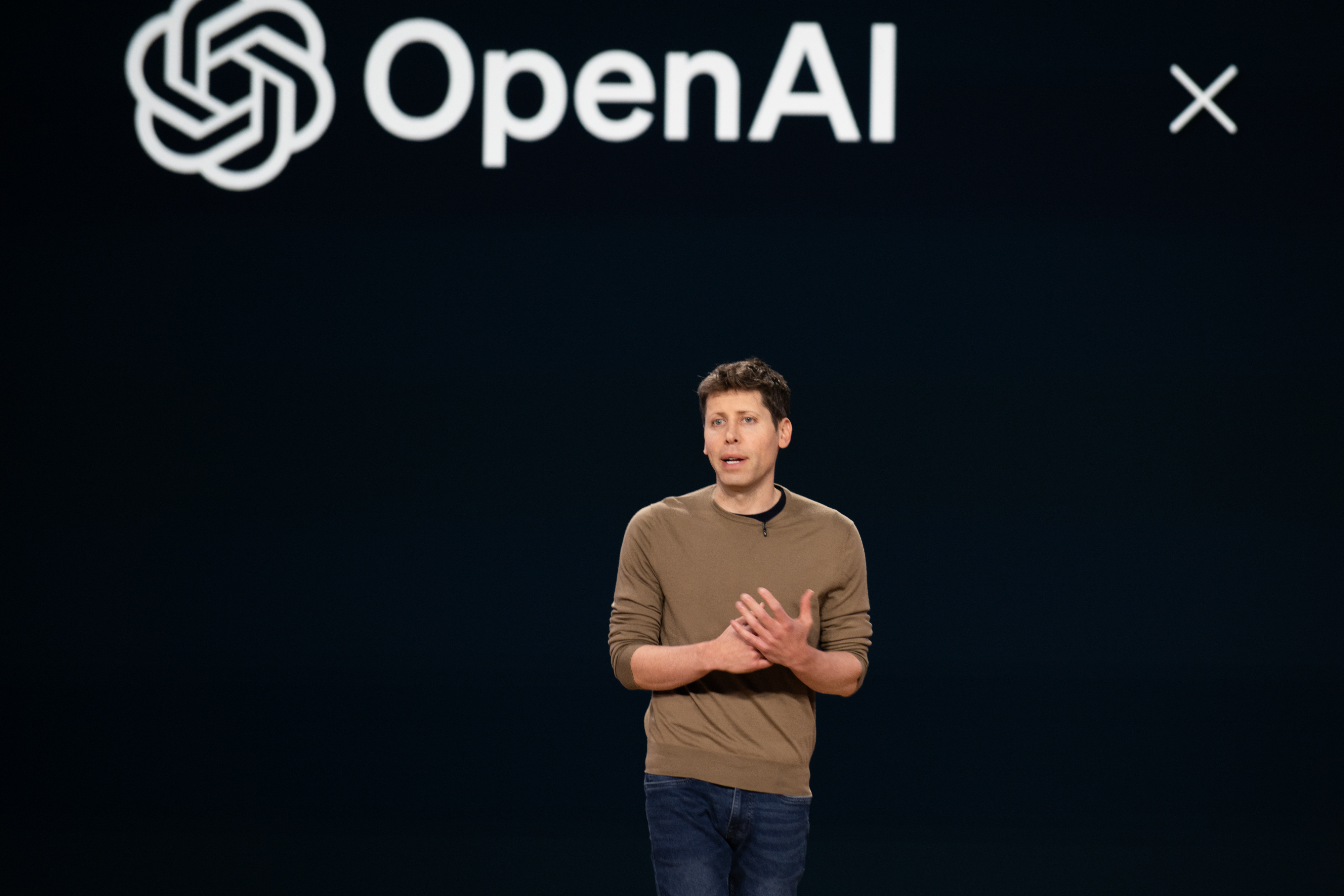What would you do if someone guaranteed you $1,000 a month for three years, with no strings attached and for mahala? To some, it might not sound like much — it’s barely R18,500 — but it’s enough to put out a few fires and most of us would probably be quite grateful for the windfall.
A major study supported by OpenAI CEO Sam Altman demonstrates that the positive impacts of unconditional cash transfers extend well beyond the potential effects of artificial intelligence. But over the long term, throwing money at the problem doesn’t solve very much.
An advocate of the concept of Universal Basic Income, Altman initiated and funded much of the study to test the utopian idea of what would happen if people were given free money, for years on end.
Altman — one of the leading figures in the generative AI boom — has cautioned for years about major job losses in certain industries as AI grows more powerful, and switches up quickly. He should know; his tech is blamed for threatening millions of jobs, even as there is some evidence that AI is augmenting, not imperilling work.
It’s a bit rich, also coming from the person who virtually bends the world to his will and about whom actress Scarlett Johansson said would make a great Marvel villain for (apparently) ripping off her voice as the platform’s AI virtual assistant.
Altman is a perplexing character, who is both bullish about the future and about AI and has a social bent.
The premise seems to be that AI’s coming for your jobs, so allow the machines to do the heavy lifting while we stave off poverty.
The Unconditional Cash Study, conducted by OpenResearch, kicked off in 2020. Involving 3,000 low-income participants recruited through Illinois and Texas nonprofits, a thousand subjects were given a cash stipend of $1,000 with complete discretion over their spending, while the control group of 2,000 were given just $50 per month.
(Other basic income pilot programmes have given test subjects $500 or less, and typically lasted less than two years.)
This week, the project published the first results of the trial that gave away about $45-million. Upcoming papers will focus on subjects such as children, mobility, crime and politics.
In general terms, $1,000 gave people more to spend on basic needs, medical care including dentistry, and helping others. On average, recipients worked 1.3 fewer hours each week. They were also more likely to be searching and applying for a job, but they applied for fewer jobs and opted for more interesting or meaningful work.
They spent 20% less on booze, tobacco and cannabis, and 53% less on painkillers not prescribed to them. Recipients hiked their overall spending by $310 a month and were able to pay more for rent ($52), $67 more on food and $50 more on transport. They were more likely to move housing units, move neighbourhoods and pay for housing.
Budgeting remained a problem; recipients were just 5% more likely to have a budget.
Compared with the control group, recipients were also more likely to report having pursued education or job training.
One recipient in the programme, Sarah, is a mother of four who earns enough from her job to pay for school supplies. She told OpenResearch in a testimonial: “I don’t really make anything off of it (my work). Even though my husband had a pretty decent job, we didn’t have a lot of money for extras.”
The payments from the programme helped Sarah pay for braces for two children and financed a graduation trip for another.
Not having to work for the money caused her to become less careful about her finances. “Looking back, I regret that I didn’t save more of it,” she said.
Celene, who had to move her family in with a friend, said she was living in squalid conditions. While on the programme, the money helped her buy new clothes, shoes and necessities. By month two, she had landed a job and started saving, so she didn’t feel like a failure as a parent.
$1,000 a month can only do so much. As the study authors note: “Cash alone cannot address challenges such as chronic health conditions, lack of childcare, or the high cost of housing.”
The study revealed that while participants initially experienced reduced financial stress, the effect diminished over time. There was no conclusive evidence linking the cash transfers to improved physical or mental health, and in the long run, their overall financial situation remained unchanged.
Critics have suggested that providing a guaranteed income might actually discourage people from looking for work, so while Altman might be worried about AI taking away jobs, a basic income itself could, in fact, take away the motivation to work.
There’s also the tiny matter of how it will be funded.
It’s not the first effort to measure the benefits of guaranteed income, but it is one of the largest, and proponents of a BIG in South Africa will take heed because going BIG will mean significant tax increases.
While the government might be hellbent on BIG, as Tim Cohen points out, citing a paper in the South African Journal of Economics titled, “The Macroeconomics of Establishing a Basic Income Grant in South Africa”, transitioning the Social Relief of Distress grant into a BIG would slow economic growth and increase unemployment. In the most extreme scenario analysed, debt would soar, taxes would rise sharply and nearly a million jobs could be eliminated within five years.
Altman’s utopian poverty solutions are enticing, but in the real world, devoid of Silicon Valley dough, creating jobs – not giving handouts – is the only sustainable solution. DM
This article is more than a year old
Business Maverick
After the Bell: Money for nothing and your BIG cheques for free
It’s not the first effort to measure the benefits of guaranteed income, but it is one of the largest.





